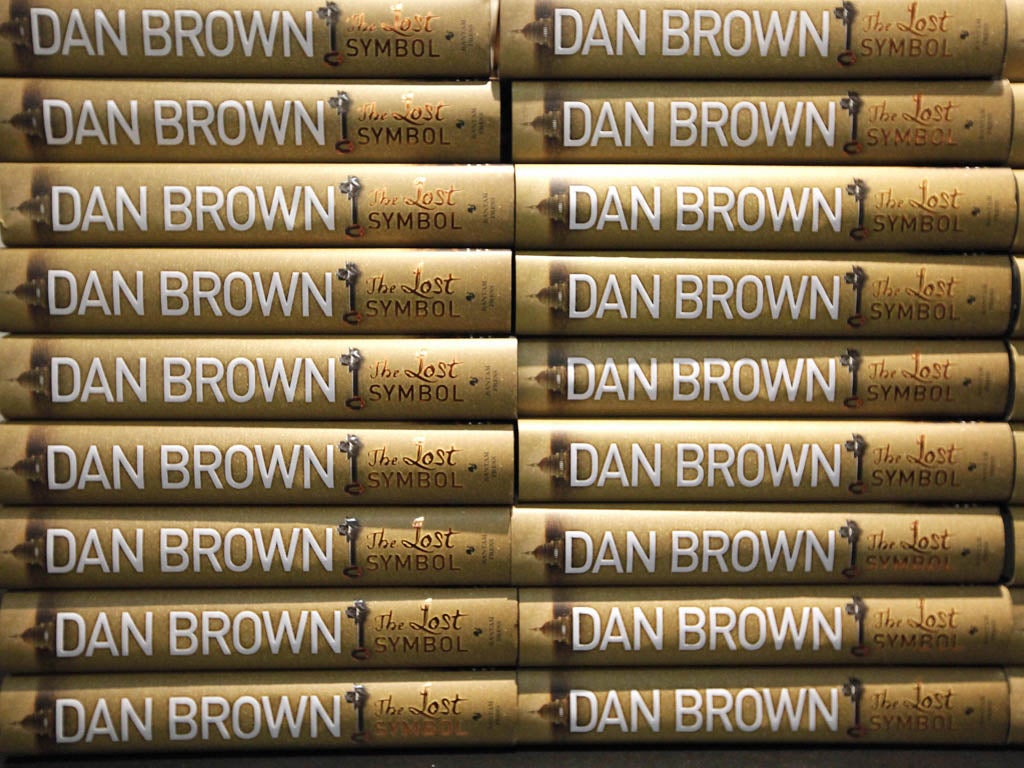Ukip, Berlusconi, and the Black Death. It must be the new Dan Brown
The author's new thriller will be published in May


Your support helps us to tell the story
From reproductive rights to climate change to Big Tech, The Independent is on the ground when the story is developing. Whether it's investigating the financials of Elon Musk's pro-Trump PAC or producing our latest documentary, 'The A Word', which shines a light on the American women fighting for reproductive rights, we know how important it is to parse out the facts from the messaging.
At such a critical moment in US history, we need reporters on the ground. Your donation allows us to keep sending journalists to speak to both sides of the story.
The Independent is trusted by Americans across the entire political spectrum. And unlike many other quality news outlets, we choose not to lock Americans out of our reporting and analysis with paywalls. We believe quality journalism should be available to everyone, paid for by those who can afford it.
Your support makes all the difference.Dan Brown is back.
The author of The Da Vinci Code, that gallimaufry of wacky theology, footling art symbolism, ooh-er mystery codes and homicidal monks from secret organisations, has revealed that his new thriller will be published in May. It’s called Inferno, inspired by Dante’s Divine Comedy, which Brown studied at university.
“I am excited to take readers on a journey deep into this mysterious realm,” Brown said this week, “a landscape of codes, symbols and more than a few secret passageways.” Well, we’re excited, too, Dan (should I call you Dante?), because we can’t wait to see what you’ll do with the great poet’s life and the ectoplasmic flannel of conspiracy theories you can extract from his travels in hell.
What do we know about Dante? He was born in 1260 or so. He fell in love with Beatrice Portinari when he was nine, never got over it and never so much as kissed her, thus inventing courtly love. He fought in the cavalry, became a pharmacist, married Gemma Donati and had several children. During a power struggle over the Pope’s influence on Florence, Dante was sent to Rome and, while he was there, Florence was invaded. He was condemned to exile and threatened with death if he returned to the city. So he travelled, lived in Lucca and Verona, wrote Inferno, Purgatorio and Paradiso, and died in 1321. That’s about it.
How will the book use this information? Let me guess. In the opening pages, Robert Langdon, the “Harvard symbologist”, will be contacted by a furtive nun from a Florentine convent, saying she’s discovered in the library what seems to be a fourth book of The Divine Comedy called CiaoBella, a comic romp which pokes fun at the sexual shortcomings of 14th-century Italian politicians.
Langdon rushes from New York to Italy, piecing together the shocking truth: that Dante went crazy in exile, seduced Beatrice and had six children with her; that he used his apothecary’s training to invent psychotropic drugs and sold them to unscrupulous dealers in Venice, whose adulterated supplies brought about the Black Death.
Langdon discovers that, if you take the first letter of each line in Canto XXXV of the Inferno, they spell out the lyrics to “O Sole Mio” backwards. We discover that Dante visited London in 1313, where he murdered his hated rival Chaucer and confessed to the deed on page 206 of the manuscript of The Canterbury Tales (but nobody could read his writing). We learn that the affair with Beatrice and the existence of CiaoBella were hushed up for centuries by a shadowy organisation called Il Solemno with links to the Rosicrucians, the Cathars, the Russian Mafia and Ukip. And we learn, in the closing pages, that the only living descendent of Dante and Beatrice is Silvio Berlusconi’s girlfriend, Ruby Heartstealer, who vows to star in a musical version of their story.
There now. It’ll be that, or something very like it.
When Alan’s time came...
If ever you doubted that British people have a sentimental streak a mile wide, the story of Alan TBH Plumptre should straighten you out. Alan TBH Plumptre was the office dog at Tatler magazine in Vogue House – a dachshund with cute and intelligent eyes but still a, you know, dog. Alan etc etc was the nation’s most pampered pet, doted on by the fashion-forward staff, carried around in designer handbags, given his own duty dogwalker at the company’s London HQ.
Tragically, he died on Monday after getting his head stuck in the revolving door. But his death acquainted us with some astonishing facts: the dog had 3,755 followers on Twitter; and when the London Fire Brigade was called, it sent two fire engines and 10 firefighters to the scene. To rescue a dog. But, of course, he was more than a dog. He was a fashion accessory.
I expect that, in his honour, Vogue House will launch a new mag for fashionable canines: Dogue.
Twitter: @JohnHenryWalsh
Join our commenting forum
Join thought-provoking conversations, follow other Independent readers and see their replies
Comments